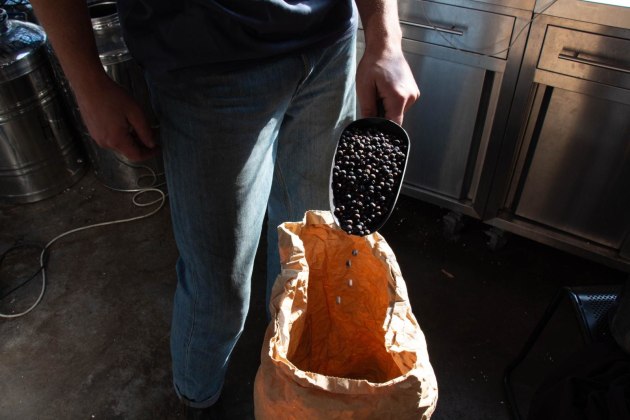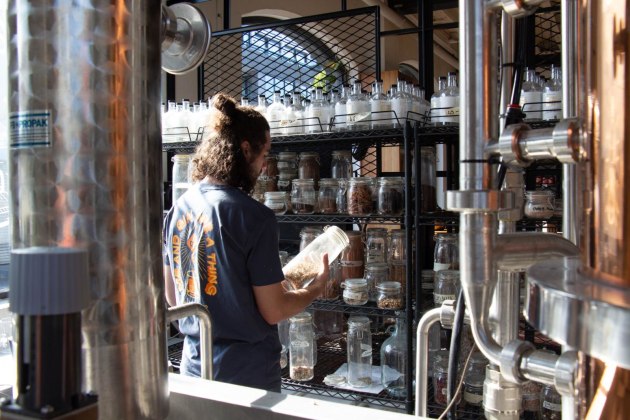It is not unusual these days for distilleries to experiment with creating NoLo versions of their spirits. Kim Berry speaks to Paul Baggio, founder and chief distiller of The Craft & Co, about what it takes to remove the alcohol but not the flavour.
From a base in Collingwood, Melbourne, The Craft & Co distils spirits and brews beers, while Bangholme on the outskirts of the city is home to its 40-acre vineyard and winery.
Despite such a comprehensive stake in the alcohol industry, founder and chief distiller Paul Baggio sees developing its first no alcohol gin, Juniper Juice, as a fantastic opportunity.
“The beverage sector has certainly super charged in the last few years and what was a niche, or fringe product has swiftly found itself front and centre. Many would argue Covid left a somewhat foggy state of inebriation with a growing health consciousness in response.
“Combined with technology advancements in the beverage industry like reverse osmosis and spinning cone, we saw an already dynamic industry turn its creative focus to something fresh and wonderfully bold,” Baggio said.
Spinning cone is a type of low temperature vacuum steam distillation, which gently extracts volatile chemicals while minimising the effect on the taste of the product.
The company’s existing range includes its award-winning Collingwood Dry, Old Tom, and Navy Strength gins, Gingerbread Gin Liqueur and Amaro.
A fresh challenge

“For our artisan distillers, applying their skill and talent to create a flavoursome no alcohol gin was a welcome challenge. And it certainly came about as there was a suitably sized market to focus that energy on. The business case found its own way as often occurs,” Baggio says.
Baggio says Craft & Co was founded seven years ago on a philosophy of flavour being paramount and a mindset of curiosity and passion.
“Having our village of artisans apply their craft to create the very best products was The Craft & Co’s reason for being. The process of making gin is very much about the flavour alchemy. The foraging, the range of flavours from the exotic to the spice road, are all descriptors that Gin drinkers have become accustomed to.
“It is not a simple process to produce a beverage that captures all the complexity packed into modern-day gin without the spirit alcohol to provide the stability needed by the complex oils of the botanicals,” he says.
A review of the NoLo gins on the market made the team determined to make a more flavoursome product that would offer the same robust experience of a traditional gin and tonic. Baggio says it was a case of necessity being the mother of all invention.
To the still
The creation of Juniper Juice began with deconstructing the flavour profiles of two gins, Old Tom and the distiller team’s favourite variety London Dry. It was a whole-of-business collaboration, with members of the kitchen crew at Craft & Co also involved.

A serendipitous trip to the north of Spain didn’t hurt the process. Baggio says they observed the use of ocean salt water and savoury notes all being “thrown into the pot that stirred the juniper juices”.
Baggio explains that the balance of the savoury notes is what makes the London Gin special. A fusion of earthy tones, the hint of rosemary and a freshness from bergamot ensuring length on the palate, he says.
While the gins provided the inspiration, the fact remained that a LoNo gin relied heavily on creating a herbal mixture.
“There were many iterations, and to be honest creating Juniper Juice delved more into the team’s extensive experience creating our Amaro than our gins. The Amaro took 250 different tastings of herbs and botanicals, which enabled us to establish a flavour library.
“In traditional gin production, juniper, lemon and orange peels are combined in a boil, but that’s limited when creating non-alcoholic spirits because they release such significant quantities of unstable matter.
He says distillers need a strong understanding of phenols and how they polymerise as well as working with blends of flavours that derive similar esters to ensure a suitable weight is delivered on the palate while ensuring the extracted mix remains stable.
“Just as creating a quality Navy Gin is all about the skill in distilling the highest quality pure base spirit, LoNo production requires a strong understanding of water alchemy. Effectively we are stabilising as much soluble floral and herbal compounds distilled water can hold in suspension,” Baggio says.
Baggio says that Craft & Co entered the LoNo alcohol market when there was a suitably sized market to focus on.
“For our artisan distillers embracing the challenge to drive the production of a flavoursome gin that does not have alcohol was fantastic,” he says.
With a stable of spirits, beer, and wine, it certainly won’t be the last LoNo offering from Craft & Co.
This article first appeared in the June edition of Food & Drink Business magazine.






